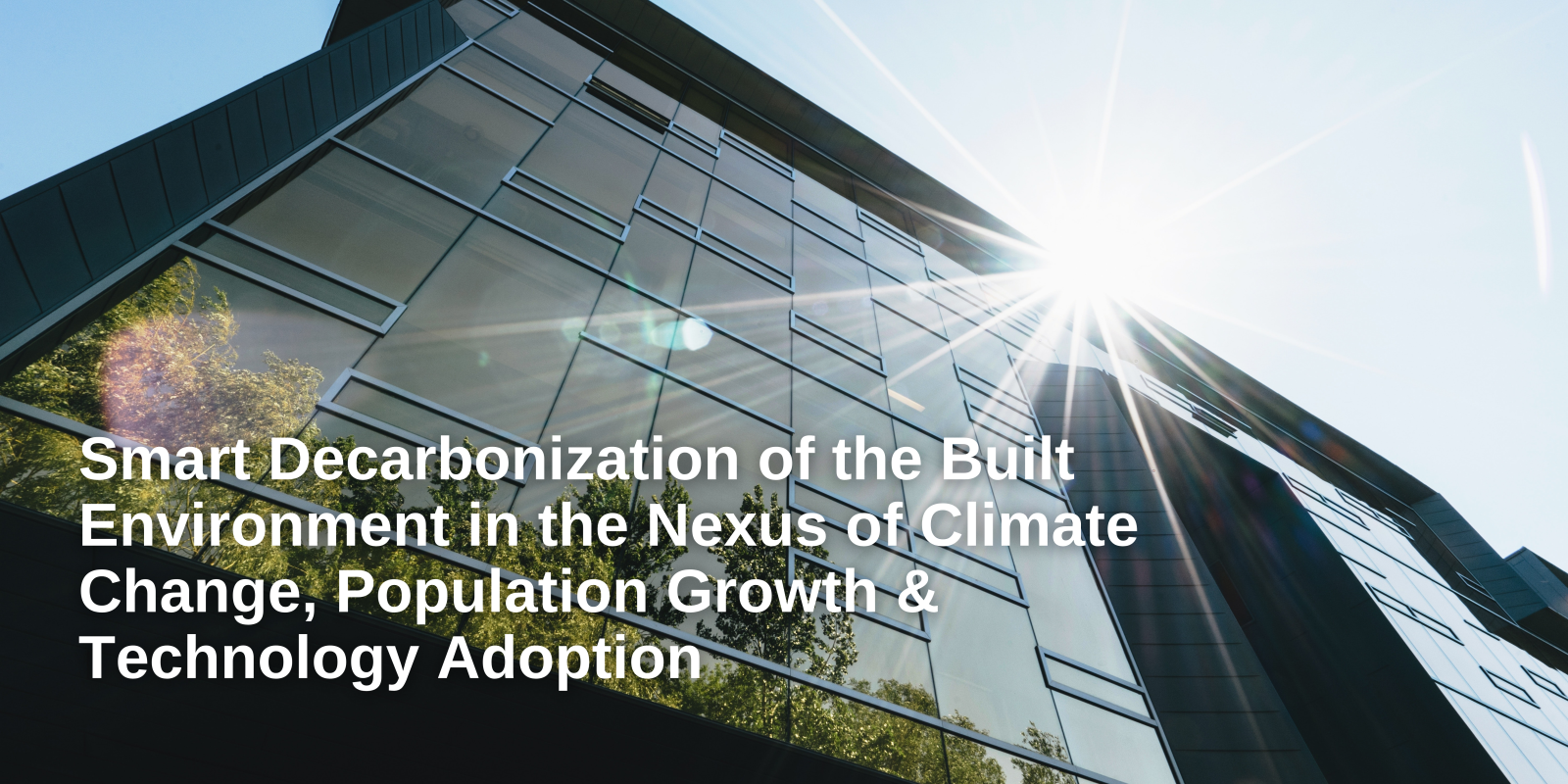
The built environment accounts for about 30% of energy consumption and associated greenhouse gas emissions, while also offering a 50-90% mitigation potential. However, creating strategies to unlock this potential is challenging due to the lack of integrated tools. More dramatically, cities need to better integrate urban strategies for mitigation and adaptation to climate change and consider the lock-in risks of their climate responses, all the while taking into account human behavior in terms of technology adoption as well as advances in modern energy management technologies. To address this, the project develops an integrated computational framework to model (a) the energy demand on a neighborhood scale with building level resolution under projected future climates, (b) potential simultaneous urban transformation pathways, (c) smart, artificial intelligence-based control of the energy systems for efficient operation, and (d) technology diffusion and population behavior due to various policies. There are a variety of conceivable future pathways, e.g., urban planning scenarios, technology adoption scenarios, climate change, energy efficiency policies, population growth, etc. The integrated simulation framework will be able to answer questions that are exploratory, e.g, What is the range of potential pathways given certain boundary conditions?, or more goal oriented, e.g., What % of the building stock needs to be retrofitted how fast, to what standard and how is that facilitated by policy to achieve a target energy/emission demand?
Our framework results in Integrated Multi-Domain Emission Pathways for Cities under Land-use policy, Technology adoption, Climate change and Grid Decarbonization (IMPACT Pathways). We apply them to model potential emission into the future for three Austin Neighborhoods.
Explore the Interactive Dashboard
Principle Investigators
Team Members
Project Publications
The CityLearn Challenge 2020
Presented at ACM BuildSys’20
Who Makes It in the Long Run: Estimating Equity Impacts in Policy and Land Development Scenario Projections 2021
APPAM Fall Research Conference, 2022
Linking Urban Scenarios with Energy Simulations for Dense Urban Planning Under Climate Change
Journal of Physics: Conference Series (Vol. 2042, No. 1, p. 012054). IOP Publishing
The CityLearn Challenge 2021
Presented at ACM BuildSys '21
Coordinated Energy Management for a Cluster of Buildings through Deep Reinforcement Learning
Energy, Elsevier, vol. 229(C)

